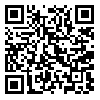BibTeX | RIS | EndNote | Medlars | ProCite | Reference Manager | RefWorks
Send citation to:
URL: http://jccnc.iums.ac.ir/article-1-47-en.html
2- Nursing Care Research Center, School of Nursing and Midwifery, Iran University of Medical Sciences, Tehran, Iran. ,
3- Department of Statistics, School of Health Management and Information Sciences, Iran University of Medical Sciences, Tehran, Iran.
Background: Today’s nursing graduates value ability to creatively solve problems and make decisions, as these skills assist hem with recognizing and evaluating situations that require prompt attention. This study aimed to determine and compare nursing student’s perceived levels of own problem solving skills in various years of their 4-year program.
Methods: This is a cross-sectional study. All undergaraduate nursing students (350) included in this study. A total of 322 undergraduate nursing students participated in this study. The study setting was Nursing School of Iran University of Medical Sciences, Tehran, Iran. The problem solving inventory (PSI), a widely used measure to assess one’s perceived ability, was used for data collection. Low scores indicated the strong judgment ability and high scores a weak judgment ability. Students involved in the study signed the informed consent forms.
Results: Findings showed that the mean score of total problem solving skill was 89.52±21.58. The mean score of this skill in fourth year students (84.18±27.47) was less than other students i.e. the fourth year (senior) students judged their own problem solving abilities stronger than other students.
Conclusion: Educating should help students reach the high levels of problem solving skills by allowing them to acquire and practice these abilities in the field. Nursing students with advanced problem solving skills are essential for this changing society.
Received: 2015/03/1 | Accepted: 2015/06/30 | Published: 2015/08/1
| Rights and permissions | |
 |
This work is licensed under a Creative Commons Attribution-NonCommercial 4.0 International License. |





